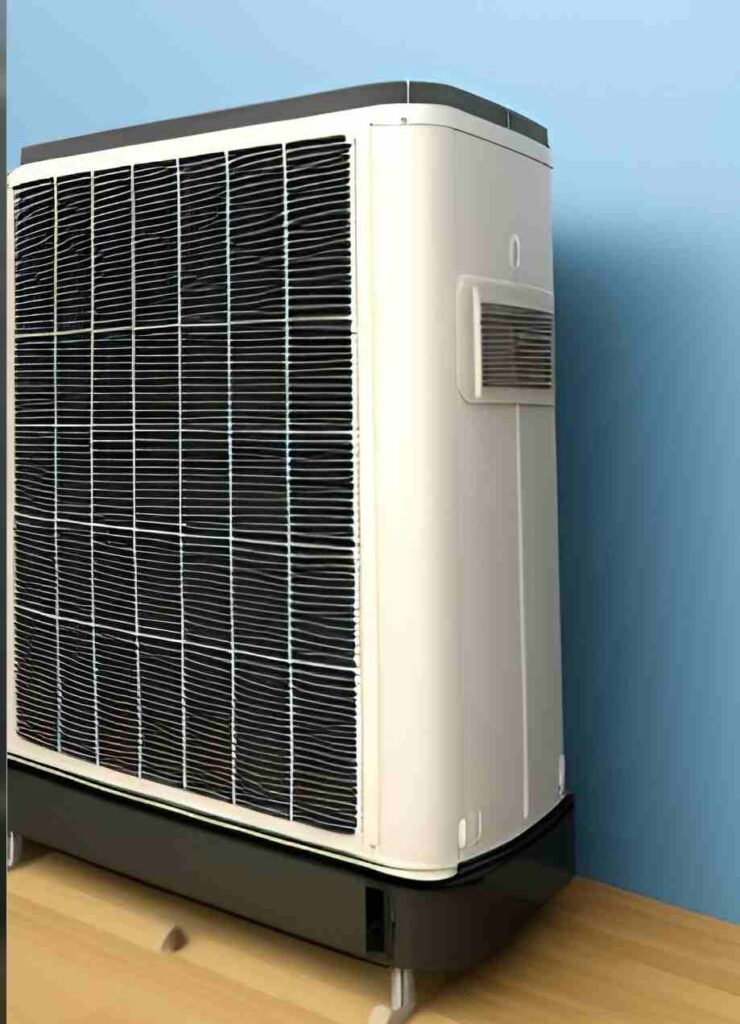While most people think of heat pumps as appliances that keep you comfortable in the fall and spring, they work year-round. In fact, a heat pump can lower your thermostat to the exact temperature you specify without running continuously.
They also use outside air to cool your home. These features make them some of the most efficient air conditioners available. However, this efficiency may come at a cost. We look at whether heat pumps can dry out the air over time.
Do Heat Pumps Dry Out the Air?
Although quick drying is not something people notice much, it does happen over time. Heat pumps remove moisture from the air slowly so won’t make the air too dry around you. When using a heat pump as an air conditioner, humidity levels are lower than with other types of Air conditioning.
Humidity keeps moisture from evaporating from moist surfaces like skin and cloth; and humidity can drop below 30% in hot climates.

Heating homes with central heating often fails to reach the same level of humidity required for comfortable conditions indoors during cooler months or humid climates. Read on to learn more about how heat pumps affect indoor humidity and how you can manage the problem if it becomes bothersome for you or your family members.
What’s the Difference Between Humidity and Humidity Levels?
Humidity is the amount of water vapour in the air. Relative humidity is the amount of water vapor in the air compared to how much there would be if there were no air in the space. Humidity levels are measured on a scale called a “relative humidity scale” which ranges from 0 (a very low amount of humidity) to 100 (a very high amount of humidity).
At a relative humidity of 50% – what is commonly experienced in an indoor environment – water vapour is equally present in the air as in the space. At a relative humidity of 100%, the air is saturated with water vapour and there is no more room for water in the air. Humidity levels will vary depending on temperature and air movement, but are usually between 30% and 90%.
How Do You Know When Humidity Is Too Low in a Home?
Humidity too low in your home can lead to dust and mould buildup, which can cause respiratory issues for everyone in the house. Low humidity in your home is usually noticed by people who are used to a different level of humidity in their home.
When humidity levels drop below 40%, it’s likely that: the air in your home feels drier and warmer to you, which is uncomfortable. Dust and other allergens are likely to appear around the house.
Indoor plants may droop or wilt; mold may grow on surfaces; wood and other surfaces may warp; pipes may expand and crack; carpet may begin to shrink, curl, or become dull and paint may begin to chip, peel, or bubble.
How to Manage Humidity in a Home with Heat Pumps
Heat pumps can reduce humidity levels in your home by taking air from the atmosphere and condensing it into a liquid form. As a result, your air feels drier, making it easier to clean and maintain.
However, heat pumps may not be able to maintain humidity levels high enough to prevent dust and mold buildup. To keep humidity levels high in your home, consider installing a dehumidifier or a fan in your ductwork to draw air from your central air conditioner and move it into the rest of your home.

Strategies for Keeping Humidity in a Home With Heat Pumps
It’s important to remember that heat pumps are designed to reduce indoor humidity at low temperatures. If you have a heat pump, there are some things you can do to increase the humidity in your home.
In addition to turning the heat pump on when the temperature is above 55°F, you can install some of the following:
- A dehumidifier in your ductwork to pull air from your central air conditioning system and increase the humidity in your home
- Low-flow showerheads in your bathrooms to increase the humidity in your showers
- Low-flow faucets in your kitchen to increase the humidity in your sink when you wash dishes. Open your windows to increase the humidity in your home
- Humidifiers in rooms with low levels of humidity
- Misting fans in rooms with low levels of humidity
- An air purification device to draw air from your central air conditioning system to increase the humidity in your home
- Window insulation to keep air from flowing through your home as quickly
- Water softener to prevent water from becoming too hard.
Conclusion
Heat pumps are extremely efficient and effective cooling systems, but they can also dry out your indoor air if you don’t take steps to maintain the humidity levels in your home. In order to prevent a dry indoor environment, you’ll need to do a few things.
First, you’ll need to keep your air clean by removing dust and allergens and keeping your central air conditioning unit clean. Next, you’ll need to keep the humidity in your home between 70% and 80%, which can be done with a humidifier or a misting fan.
Read related articles:
